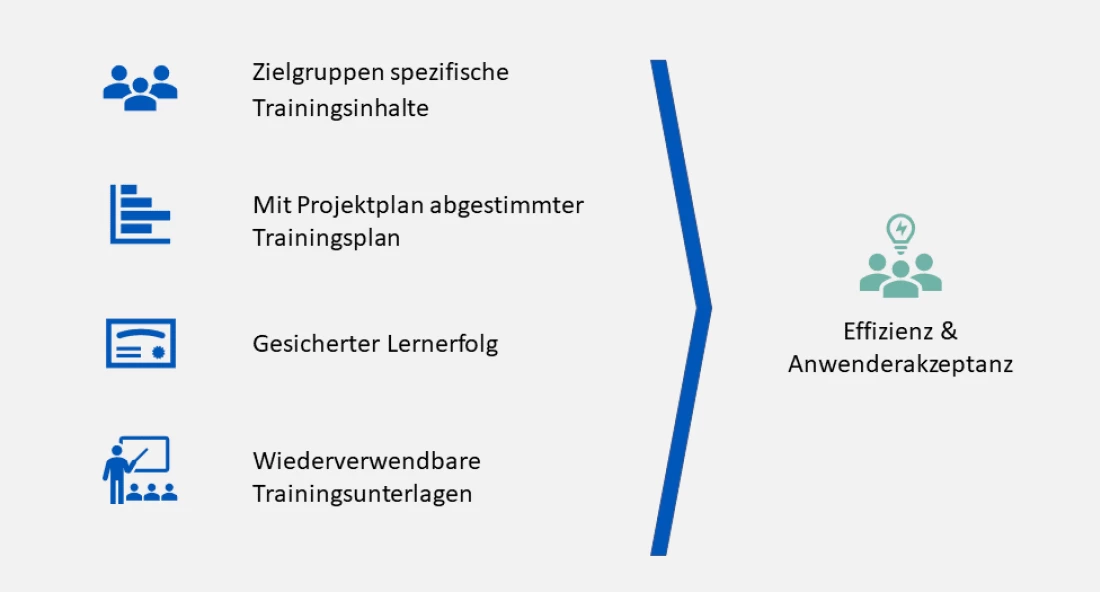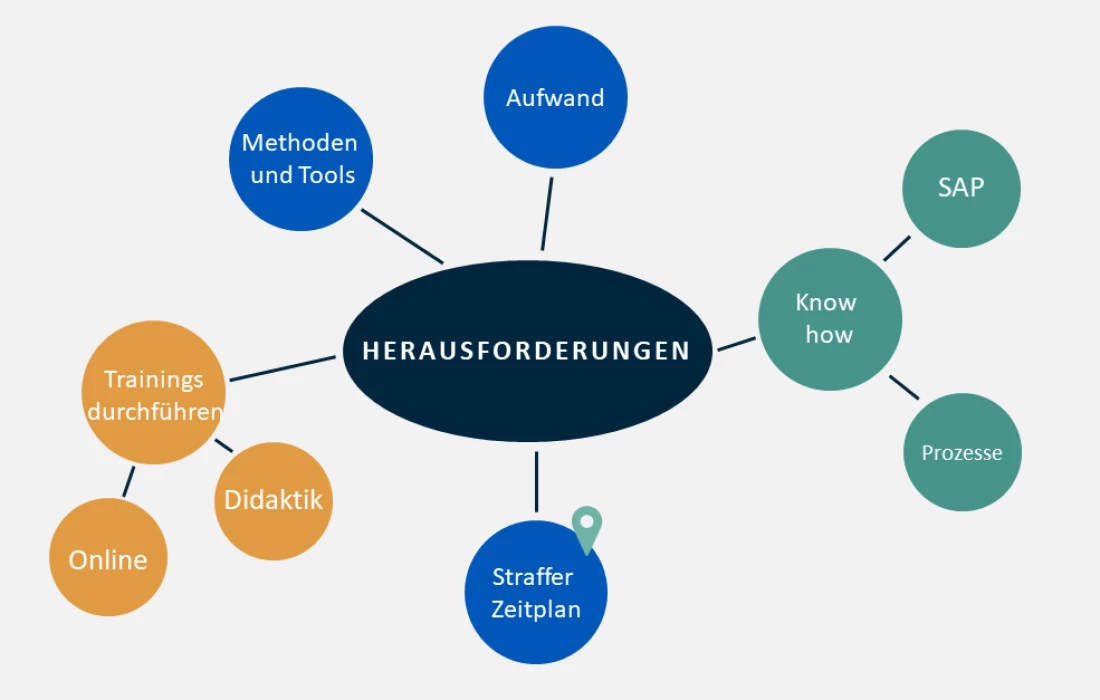Training in S/4HANA implementation projects
Perhaps you have already experienced yourself in SAP projects that the pulse of the project members increases shortly before GoLive: The user training sessions are coming up, even though the key users themselves do not yet feel confident in the processes, while at the same time the preparation of the training documents leads to high costs. At the same time, the go-live is drawing ever closer and the key users are already busy with other tasks, such as testing. Even if other tasks have priority, a lack of or inadequate training can jeopardize the go-live.
Project management should therefore integrate the training component into the project as early as possible. By using synergy effects with other project phases, training costs can be reduced and workload conflicts can be prevented at an early stage. Do not underestimate the effort required for training and keep an eye on training progress!
A successful training concept is individually tailored to the project circumstances. The training plan should be aligned with the project plan and the project methodology. It is important to consider the template and rollout phases in detail. The selection of suitable tools for the training also depends on the individual requirements and framework conditions in the company. A preliminary analysis is therefore advisable. The training content should also be aligned with the processes from the project plan or the workshops. The training documents should not only meet qualitative requirements, but also be designed to be as sustainable as possible so that they form a basis for long-term knowledge management even after the go-live.
A sustainable training concept also involves the key users, team leads and/or process owners in the preparation and implementation of the training. At the start of the project, key users must be given the opportunity to build up their knowledge of SAP and the processes. A key user training course should prepare them both didactically and methodically for the training courses so that they are able to prepare and conduct the end user training courses independently. Among other things, the key users learn how to create their individual training plan, use tools and create high-quality training documents as efficiently as possible. The training also encourages the key users to support each other and share their ideas!

The current pandemic and the associated measures to combat the pandemic, such as the transition to working from home, also pose new challenges for training. Online training poses higher didactic requirements and demands specific technical knowledge from trainers, for which they must be prepared. For example, didactic training answers the question of how trainers can motivate end users and actively involve them in training despite online training. This also increases user acceptance. The main aim of the training is to enable end users to carry out the processes independently on the system. You should also measure the success of the training at the end!

Perhaps you are wondering how exactly these points can be implemented in your project? SPIRIT/21 will be happy to support you with training in S/4HANA implementation projects by creating an individual training concept, selecting tools and coordinating and conducting key and end user training.
Learn more

What changes and innovations can customers expect when switching to the new SAP S/4HANA 2023 release? A brief insight into the new release strategy and highlights of the new release at application level.

So-called “bulky documents” often prevent the successful archiving of documents and clog up the SAP system. What can be done?

Learn how SAP S/4HANA Cloud is being rolled out as a complete package. Read our blog for comprehensive insights and practical tips.
Sara Duman
SAP
Phone: +49 173 347 7831
E-Mail: sduman@spirit21.com
Sara is a certified trainer for SAP software as well as a certified SAP SD consultant and supports companies with training in SAP projects.

